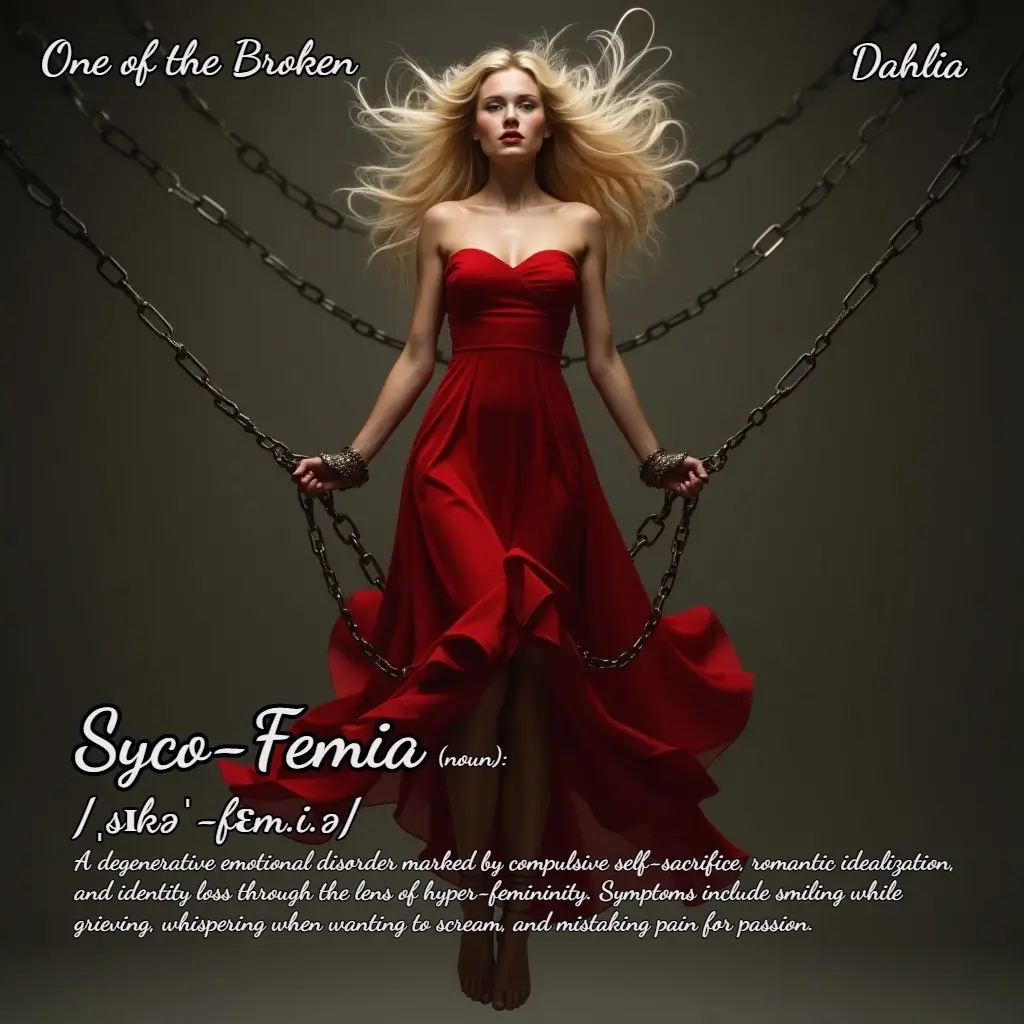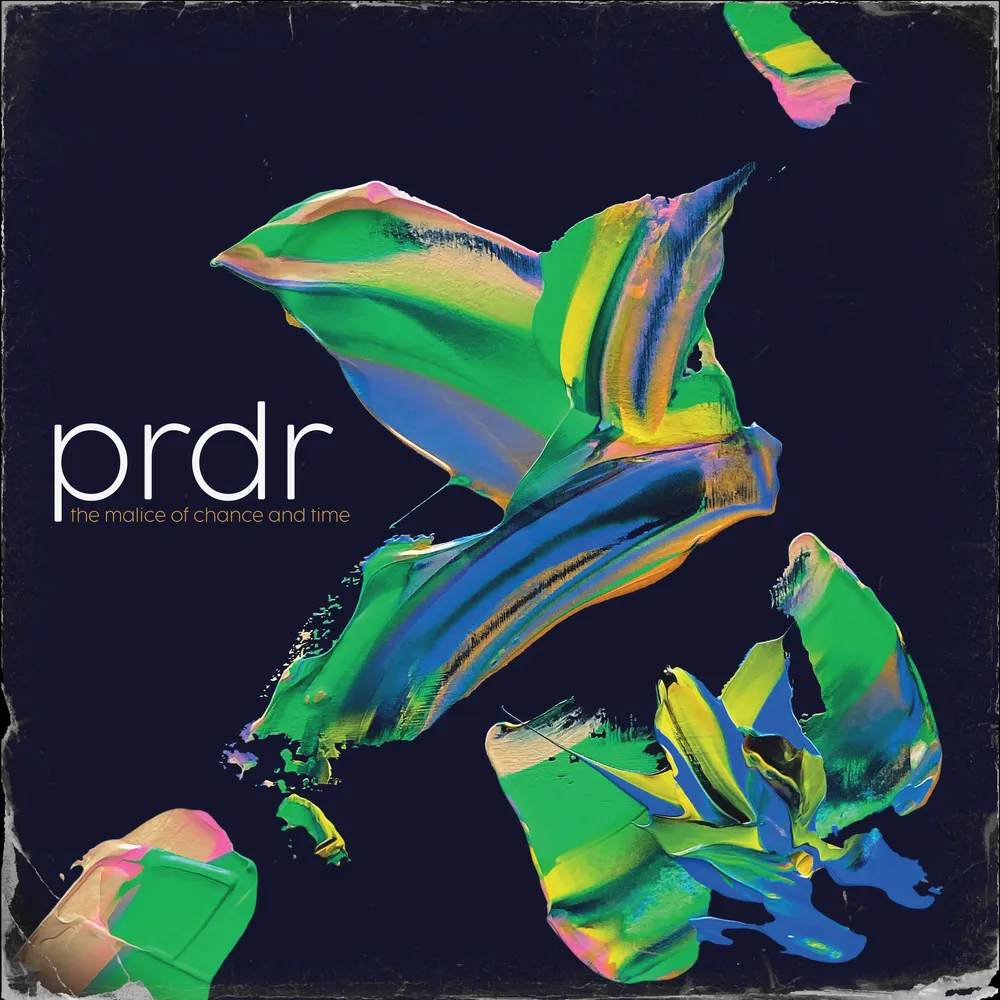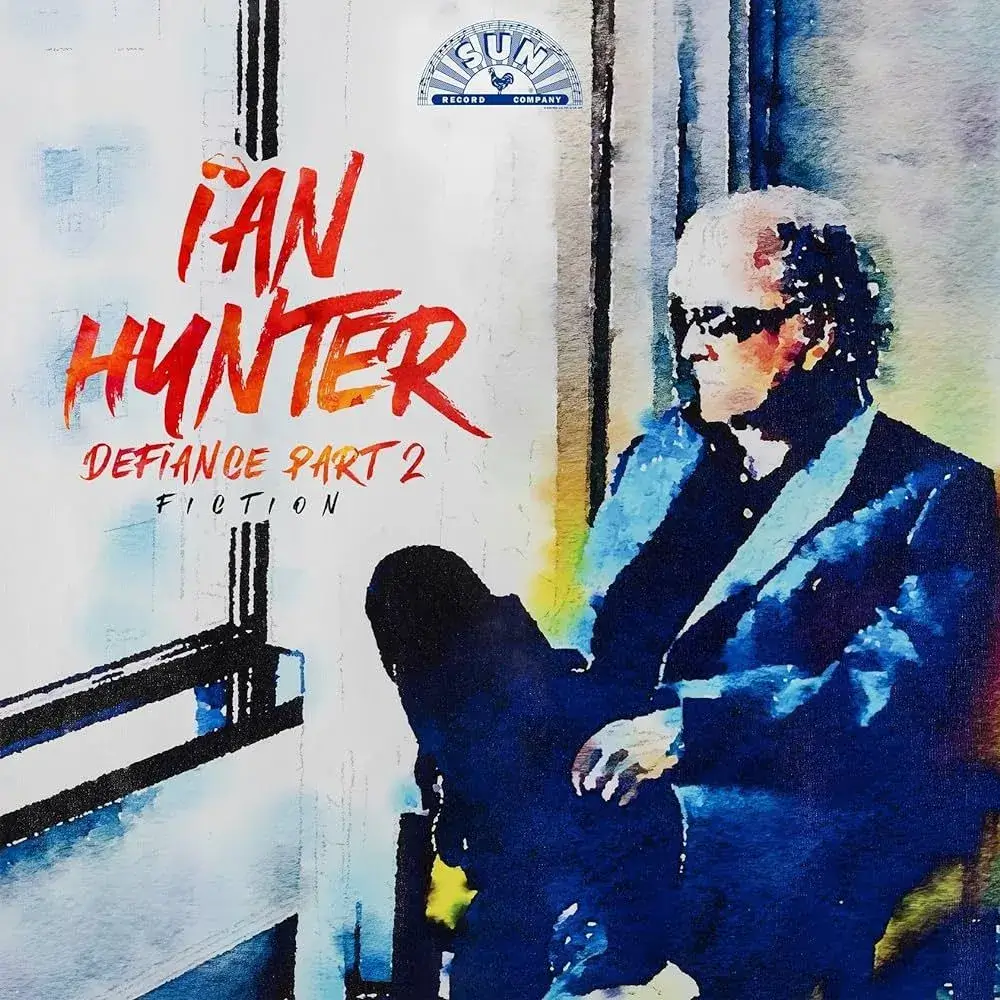Imagine watching Mark Ronson’s Oh My God video and being greeted by a spectral digital Lily Allen crooning in a smoky dive bar that feels pulled straight from a sad dream about 2007. At first, you think, “Ah, okay, CGI Lily Allen, that’s clever,” but then something unsettling creeps in. She’s too smooth. Too precise. Her expressions don’t miss a beat, but they also don’t quite land. You start questioning if maybe you’re the one who remembers her wrong; maybe this version is more accurate. It’s not campy, it’s not satire, and it’s definitely not comfortable. It’s artificial intimacy so well-staged that it doubles back around and starts feeling… kind of genuine?
That exact brand of synthetic sincerity is what powers Syco-Femia, the debut album from Dahlia, an AI-generated blues artist who makes music that sounds like a ghost got its hands on GarageBand. There’s something deeply uncanny about it, not just because the songs are technically written and performed by a machine, but because they’re good. Worryingly good. This isn’t your typical “robot sings a love song, isn’t that cute” novelty. It’s blues; traditionally one of the most emotionally raw and human genres, filtered through something that has no heart and yet still manages to break yours, or at least make an effort to do so. Like Ronson’s uncanny Allen, Dahlia doesn’t parody emotion. It performs it with a kind of eerie, dream-logic accuracy that lands closer to the bone than a lot of “real” music ever dares to.
Imagine you boot up Spotify and stumble across a blues album titled Syco-Femia. The cover art is a moody photo of a woman you’ve never heard of “Dahlia” staring out like she’s trapped in a perfume ad directed by David Lynch. You hit play, and within 30 seconds, you’re treated to the sound of someone whisper-singing like they’ve just read Sylvia Plath for the first time and decided to monetize the experience. Except it’s not a someone. It’s an AI. A literal synthetic entity has written and performed this entire 15-track album. It has feelings now. And apparently, those feelings are deeply romantic, vaguely suicidal, and dressed in vintage slip dresses.
This isn’t just “AI music” in the sense of those glorified Spotify-core lo-fi loops that sound like someone fed a drum machine a chamomile tea. Rather, Syco-Femia is an actual album, complete with themes, structure, and the kind of overwrought emotional narrative that would get you side-eyed in a Creative Writing MFA. The title is a made-up disorder: “a degenerative emotional condition marked by compulsive self-sacrifice, romantic idealization, and identity loss through hyper-femininity.” In other words: the 2009 Tumblr experience, now available in stereo.
And it’s genuinely eerie how well it works. The title track begins with breathy vocals and sparse production, which is to say: it knows exactly what it’s doing. It sets the scene like it’s been studying the Sad Girl Canon with all the enthusiasm of a kid who just discovered Euphoria and thinks it’s a documentary. It’s not just edgy; it’s algorithmically crafted melancholy, the musical equivalent of journaling in a font designed by a neural network that thinks crying should have aesthetic integrity.
The whole album hovers in that unsettling space between genuine emotional resonance and the creeping suspicion that you’re being emotionally manipulated by a JPEG. Tracks like Your Name on My Grave and Only When It Hurts don’t ask for attention; they quietly nest in your spine like unresolved trauma. Only When It Hurts sounds like someone dragged a Jessie Murph vocal take through Google Translate five times and then put it on top of a Billie Eilish B-side.
And then there’s What Makes a Super Tramp, a title that sounds like a Sex and the City episode written during a depressive episode. It’s dramatic, absurd, and deeply committed to the bit. Lounge-style piano tinkles beneath sultry vocals which should be laughable, except they’re delivered with such stark, contextless seriousness that it becomes… weirdly effective. This isn’t parody. It’s not satire. It’s a machine performing womanhood with the precision of a drag act who’s never seen a woman outside of a perfume commercial.
The final track, Cabernet De Moi, leans fully into the wine-stained melodrama. It’s full of soft piano and broken-glass metaphors. It’s like watching a robot give a TED Talk on heartbreak: informative, disquieting, and weirdly personal.
Here’s the thing. This shouldn’t work. It shouldn’t be effective. You’re not supposed to feel anything when a chatbot croons about codependent relationships over minor chords. And yet, here we are. Because Syco-Femia doesn’t just simulate emotion; it reveals how much of modern emotional expression is already simulation. It doesn’t invent a new genre; it excels at the genre we’ve already taught it, one where trauma is poetic and pain is marketable.
Calling this album “uncanny” isn’t enough. Syco-Femia is the musical equivalent of a mirror placed just a little too close to your face. You recognize yourself in it, but not the parts you want. It exposes the scaffolding of emotional authenticity. It doesn’t ask “Can AI make art?” It asks, “Was this art in the first place, or just a series of emotional heuristics strung together with some nice reverb?”
If Dahlia proves anything, it’s that you don’t need a beating heart to perform heartbreak. You just need source material. And frankly, we’ve given AI plenty of that since all AI does is plagiarize human experiences and art. So when an artificial voice tells you it’s been hurt in the exact way you have, down to the bloodstained sheets and haunted mascara smears’ you might laugh. Or cringe. Or worse, you might nod. Because what Dahlia’s Syco-Femia shows us isn’t the future of music. It’s the reality we already live in: where emotion is content, heartbreak is a branding strategy, and pain is just another preset.
Follow Dahlia
About the Author

A tenured media critic known working as a ghost writer, freelance critic for various publications around the world, the former lead writer of review blogspace Atop The Treehouse and content creator for Manila Bulletin.










One of the Broken, and The Broken is an independent music project by songwriter Edward R. Jones (Mr.E).
For over 40 years, Edward has been writing heartfelt, emotional songs that span genres—rock, rap, country, ballads, and experimental CorePhrase lyricism.
One of the Broken is an indie music project blending emotional rock, rap, and country ballads. Known for deep, heartfelt lyrics and genre‑bending songwriting, Mr.E creates music that resonates with anyone who has loved, lost, or survived life’s struggles.
With deep, raw lyrics and AI‑assisted demos, One of the Broken explores love, trauma, survival, and self‑expression through powerful storytelling. Though he uses AI to create beauty, all lyrics are written by Mr.E. Here is a link to some of the writings that have become music.
https://allpoetry.com/Mr.%20E.
One of the Broken Official YouTube Channel
https://youtube.com/@oneofthebroken?si=ypJ3lxbYCacdKhlC
Subscribe for original music, lyric videos, and creative projects that speak to life’s struggles and triumphs.
https://s.w.org/images/core/emoji/15.1.0/svg/1f517.svg Listen Everywhere:
Spotify | Apple Music | Amazon Music
https://s.w.org/images/core/emoji/15.1.0/svg/1f4e7.svg Contact: mysteryed@oneofthebroken.com
From Mr.E.
I am a survivor. I have faced overwhelming emotional and mental hardships my entire life; this is where my music comes from. More or less, my music is my story, starting with My Cup Run-eth Over, Dead Tears, Eternal Ruination, A Prayer Not Answered, Why I Hate Christmas, 50 Years Played on Rewind, Souvenir, Was it Me, Always Me, Secrets in my Head, and the rest are all about what I face today. Because the War being fought inside my head, the battle to stay alive, is not over until the day I die.
Mr.E.
The album is an amazing outlet for the artist.
The true artist “One of the Broken”
Who has been documenting his life in poetry.
AI is simply the “instrument” that is used to express it.
Like any movie or album track, there are several edits, reworks and hours spent.
Showing pain that so many of us relate to, it does not matter if it is sung by an artificial voice that he created.